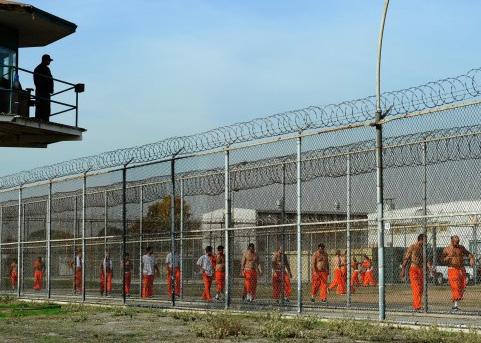
7 minute read
Commitment to Elections and Constitution Waivers After Turkey Earthquake
By Yasmin, Abbasoy Staff writer
Amid Turkish President Erdoğan’s floundering through an economic crisis and the looming threat of an upcoming election, a calamitous pair of earthquakes have begun to resemble an extended Day of Reckoning for the Turkish President’s administration. The dire state of the Turkish government has led to mounting speculation on what measures it will resort to preserve its 20-year reign. Fears of the most desperate measures — a postponement of the elections scheduled for this coming May — were only invigorated by a statement from a former politician known for his intimate ties with the ruling party that seemed to be an attempt to judge the lay of the land indirectly.
Advertisement
With over 50,000 dead and the death toll still climbing, the catastrophe has quickly become Europe’s “worst natural disaster in a century,” according to the World Health Organization. Striking as the earthquakes did, late at night and in the middle of winter, necessitated a fast and efficient humanitarian response: one decidedly not delivered by the Turkish government. These adjectives do not describe the ruling Justice and Development Party (AKP) of recent years, defined by increasing authoritarianism and layers of financial misconduct and cronyism. Unable to rise to the occasion, the government was subject to further merciless exposure of its shortcomings in governance by a population who felt thrown to the wind. The criticism was only strengthened by existing discontent with the state of affairs in Turkey, especially when certain shortcomings in the earthquake response were widely seen as a result of the festering wounds of the longtime misgovernance of the ruling party.
The immediate call for donations disseminated by the government-funded Disaster and Management Authority (AFAD) bred discontent in a population paying so-called “Earthquake Taxes” since a similarly devastating tremor in 1999. The perceived misuse of government funds refers to a familiar refrain: the government’s salient pattern of financial misconduct. Most recently, the opposition campaign demanding an explanation for the discreet sale of $128 million in reserves by the central bank resulted in one of the most popular political slogans of modern Turkish politics, What happened to the $128 million, and succeeded in highlighting this established pattern of behavior. The people were willing to give the government very little grace.
The inability of the poorly funded AFAD to reach several affected provinces in the hours following the earthquake provoked further outrage among a populace habituated to the quintessential government defense, mobilized against all criticism: “We built roads!” The collapse in infrastructure, exemplified by photos of pitch-dark highways cracked open and crumbling like styrofoam, not to mention the airport runways split down the middle, rankled a party that had long prided itself on the modernization of the admittedly inferior infrastructure it inherited. Where AFAD could reach, efforts to stabilize survivors extracted from the rubble, in danger of freezing to death in below-zero temperatures, were hampered by structural damage to essential buildings such as public hospitals. The utter failure of government-funded buildings in withstanding the earthquake is yet another symptom of rampant cronyism, seeing that the meteoric rise of a group of government-supporting companies dubbed the “Gang of Five” was precipitated by the endless amount of contracts handed to them.
The state of private residences was no different, with entire groups of buildings collapsing like rows of dominoes. Illegal and not-strictly-legal construction is rampant nationwide, including in the affected areas, where construction that did not follow official guidelines for earthquake-resistant design was the norm. In the days immediately following the earthquake, the government publicized its arrests of independent contractors responsible for specific buildings whose collapse led to the deaths of over 130 people in some cases. They were often caught trying to leave the country and so gleefully used by the government as sacrificial lambs to present to an increasingly angry population. This strategy was undercut as soon as the AKP’s proposed construction amnesty plan in the election year were brought to light. These amnesties, which strangely enough always correspond to election years, retroactively legalize illegal structures. They have been harshly criticized, as have been most government policies, as populist and shortsighted.
Turkish people channeled their fear, rage and despair into aiding the nationwide effort to support victims. Twitter, described by then-CEO Dick Costelo in 2013 as the “global town square,” became the site of many donation campaigns and charity drives. Hoping to the affected areas and names of missing loved ones. Criticism of the government was, as always, omnipresent: photos of the controversial actions of the government were heavily circulated. Whether it be labeling tents sent by foreign countries with too blatantly for the Turkish government’s comfort as they blocked access to the website for at least 12 hours only three days after the earthquake. Widely considered to be a move to curb criticism and provoke a tbacklash, the extreme measure gave the rubble of their ruined building with his means, was arrested on charges of denigrating the state for a tweet reading simply, “Where is the state?” The new party line was echoed by the man himself, twotime President Recep Tayyip Erdoğan, who, in to supplement insufficient search and rescue efforts, Twitter users shared the names of once-apartment buildings turned rubble under which they could hear people calling out, lists of necessary supplies
Turkish Red Crescent stickers or rejecting jackets with Efes Beverage Group logos due to the company’s production of alcoholic drinks, it was all on the app for all to see and judge. And people were judging, way to the idea that the government was in a difficult situation. While the website was eventually unblocked, authorities came down hard on criticism: A lawyer, trying in vain to extract his family from his increasingly aggressive speeches, resorted to describing detractors, most of which were victims of the earthquake, with increasingly creative insults.
At the end of February, he made a dramatic oneeighty with regard to the government response, using the opportunity presented by a speech in the heavily-affected Adıyaman to ask for “hellalik” (a religious acknowledgment that one owes nothing to the other, as all previous sins have been forgiven) from the people.
This alarming confluence of factors gave way to fears of a postponed election, with the ostensible goal of giving the apparatus time to recover from the failure in the earthquake response and bolster support for re-election.
On Feb. 13, merely a week after the earthquake, a former political adviser notable for his close connection to Erdoğan and other leading figures in the party released a statement that would occupy the public consciousness for weeks. Bülent Arınç, a founding member of the AKP who recently retired after 20 years in the political game in a variety of positions —most significantly as the head of the Presidential High Advisory Board —published a threepage document outlining his views on the upcoming elections on his Twitter account.
His statement, conveniently bolded for readability, called for unity and used religious language to rail against what he described as the inappropriate discussion of elections so soon after such a disaster: “Fear God, there are still bodies under the rubble. How is it possible to talk about elections when you can’t talk about the electorate?” Reiterating that it would be best for the country to “be freed from the stress of elections as soon as possible,” he proposed two potential solutions: the first, amending the constitution, which only permits postponement in the extreme situation of war; and the second, a certain decision taken by the Supreme Court that allows the Supreme Election Council to determine that it would be impossible, due to lack of order or institutions, to hold elections at the planned date. Most alarming, however, was the justification for amending the constitution, long considered the unshakeable backbone of any democracy: “The constitution is not a spiritual document, it is a legal one.” From an increasingly Islamist party that has historically embodied a devil-may-care attitude regarding changes to the constitution, as the recent shift from a parliamentary system to a presidential one while extending executive powers illustrates, this read as a threat.
The response can best be summed up as overwhelming backlash. On Twitter, disabling replies to restrict criticism was rendered useless by the sheer amount of vitriol aimed at Arınç: the tweet has received 1,270 “favorites” and more than 12,000 “quote-retweet” comments, the overwhelming majority are negative. Days later, Arınç sat down for a live televized interview, affirming that “Perception should not override facts.” He also stated that his statement was not an attempt to test the reaction of the public on behalf of anyone, and revealingly, that he believed that chaos would not break out if elections are not postponed, but rather if they are postponed in a way other than a constitutional amendment: a yet-unmentioned possibility. Opposition leader Kemal Kılıçdaroğlu commented that “The constitution is very clear, the election cannot be postponed. Running away from the election does no one any good.” In contrast, the government, surely aware of the massive scale of the opposition, took a reassuring tone: “The election is not postponed, the process is continuing as is. If the technical infrastructure is provided on time, the elections will take place on May 14th.”
On March 6, the Supreme Election Council was presented with a preliminary report on the status of electoral and other relevant institutions in the area, which concluded that there were no obstacles to an election being held at the previously fixed date. As for the prospect of a constitutional amendment, the ruling coalition does not have the required amount of votes to push through an amendment without the support of the opposition, which perhaps accounts for the sudden and outsized emphasis on inter-party collaboration observed in the statement. The past and present of the party do not inspire much confidence in their adherence to accepted procedure, however, and the Turkish population is again left wondering about what exactly the party will do to secure their chances.
On March 10, Erdoğan signed an executive order for elections to go ahead on the previously decided date, May 14. Notably, the order was not for the previously scheduled elections to go ahead but for the 2018 general elections to be renewed. This has widely been interpreted as a method of sidestepping yet another constitutional problem — the fact that one person can only be elected to the role of President twice. Having tried to defend Erdoğan’s candidacy through a convoluted argument that involved the new presidential system acting as a reset, with each candidate treated as if he had never run before, the party has now set its sights on more concrete and thus more dangerous measures. This new development is completely in line with the rhetoric and strategy of the government with regard to the option of postponement, betraying deep-set values incompatible with constitutional democracy and confirming that the party is willing to do anything to cling to power. The wide-ranging aftereffects of the earthquake have heralded a new era of cutthroat politics for the government. As eyes turn once again to the High Electoral Council for a comment on the legality of this new decision, the upcoming election will not just be a choice between political parties but a vote on the foundations of the state itself.







